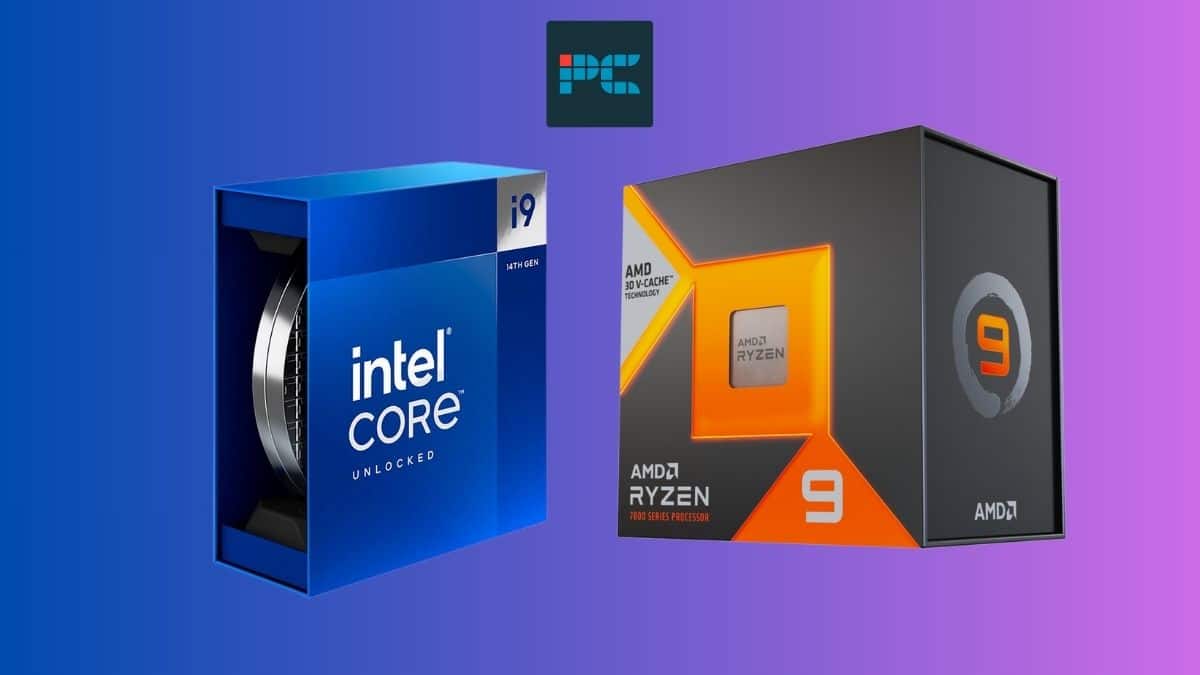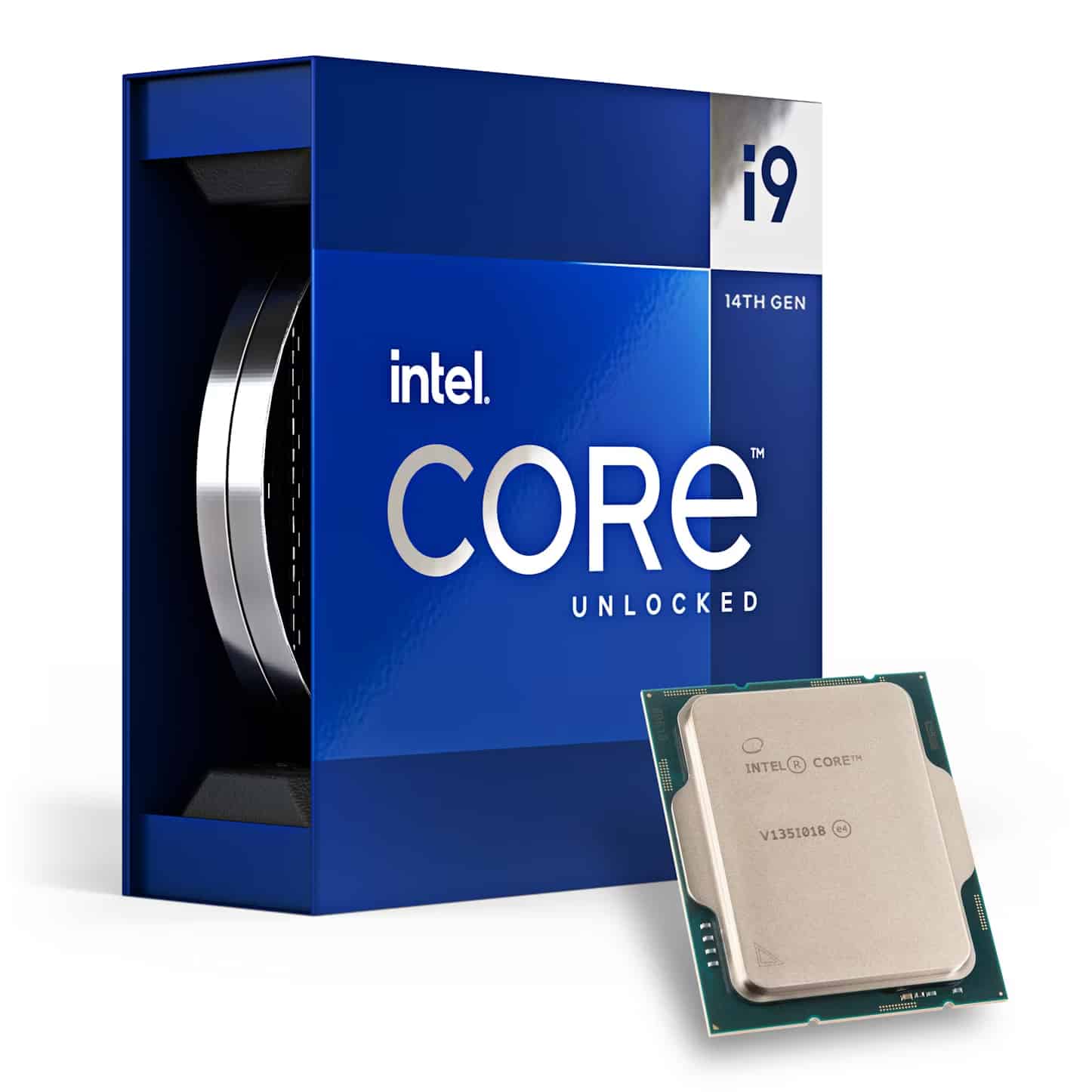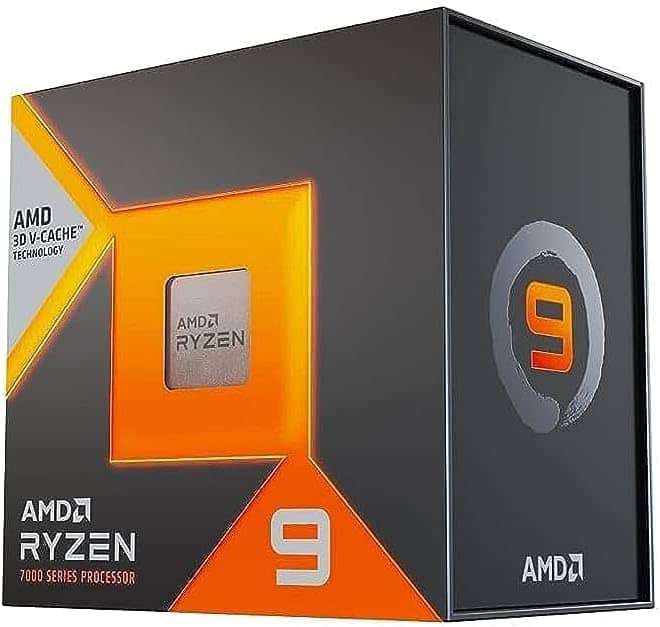Core i9-14900KS vs Ryzen 9 7950X3D – Intel or AMD?

Table of Contents
The Intel and AMD battle in the CPU market has come a long way, and although Team Blue has the majority of the market share, AMD's Ryzen 9 7950X3D came to take away the highlights and deliver a very strong CPU, not only in gaming but also in content creation. But against the Core 14900KS, would the extra cache of the X3D be enough? We’re pitting the Core i9-14900KS vs Ryzen 9 7950X3D.
In every benchmark and comparison, the 7950X3D performed very similarly against the previous 14900K, in some games AMD took the lead, and in others Intel did it, the consensus was that the 7950X3D was better thanks to its power efficiency and temperature. However, the 14900KS improves the raw power of the CPU and might deliver 6.2 GHz of turbo speed; this is enough to beat the Ryzen 7950X3D. Let’s see it in more detail.
Core i9-14900KS vs Ryzen 9 7950X3D: Specs and Performance
The 14900KS is features a turbo clock frequency of 6.2GHz, eclipsing the 7950X3D’s 5.7 GHz. This significant difference in clock speed could be a pivotal factor in determining the superior CPU, potentially giving Intel an edge in raw computational power.
However, AMD has a unique ace up its sleeve: the 3D V-Cache technology in the 7950X3D boasts an astonishing 128MB of L3 cache compared to the 14900KS’s alleged 36MB. This massive cache size has been AMD’s trump card, particularly in enhancing gaming performance where fast memory access is crucial. Besides gaming, this extensive cache also benefits tasks requiring large data sets to be quickly accessible, such as certain content creation workflows.
| Tech specs | Core i9-14900KS | Ryzen 9 7950X3D |
|---|---|---|
| P / E Cores | 8 / 16 | 16 |
| Base Frequency (P) | 3.2 GHz | 4.2 GHz |
| Turbo Boost Frequency (P) | 6.2 GHz | 5.7 GHz |
| Total Threads | 32 | 32 |
| L3 Cache | 36 MB | 128 MB |
| TDP | 150 W | 120 W |
| Memory types | DDR5-6000DDR4-3200 | DDR5-5200 |
| MSRP | $700 (?) | $699 |
AMD’s X3D CPUs have historically leveraged their substantial cache to outperform rivals in many scenarios. Yet, the sheer processing speed of the 14900KS might just tip the scales in Intel's favor. However, this raw power comes at a cost: the 14900KS is expected to be less power-efficient and run hotter than the AMD counterpart, which maintains an edge in efficiency thanks to its lower power consumption (lower TDP) and heat output. It’s comparable to the non-3D 7950X which has a 170W TDP.
For those who prioritize peak performance above all and are less concerned about power efficiency or thermal management, the Intel Core i9-14900KS, once it hits the market, could be the ultimate choice. On the other hand, the AMD Ryzen 9 7950X3D remains an excellent option for users valuing a balance between top-tier performance and energy efficiency, alongside remarkable gaming capabilities.
Generally speaking, Intel’s last few processors have been better for workloads such as Geekbench and Blender thanks to the implementation of higher core counts vs AMD Ryzen. Strictly for gaming, it becomes a different story, as long as you’re pairing with the best graphics cards instead of using integrated graphics. The right GPU could seriously level up your gaming setup.
Core i9-14900KS vs Ryzen 9 7950X3D: Price
The pricing of the AMD Ryzen 9 7950X3D and the Intel Core i9-14900KS places them in a very similar bracket, with the 7950X3D at $699 and the 14900KS expected to be around $700. This close price point makes the initial cost comparison straightforward; however, the overall investment required for each setup differs significantly. For this reason, it’s hard to gauge which chip offers the better value.
AMD's 7950X3D needs to be paired with AM5 motherboards and DDR5 memory, representing a newer platform with potentially higher costs due to the need for cutting-edge components. On the other hand, the Intel Core i9-14900KS offers broader compatibility, including with systems that don’t require the immediate leap to DDR5, potentially making it a more cost-effective choice in the short term.
Price-wise, the Intel option might seem more attractive initially, especially for those not ready to invest in DDR5 memory. However, considering the long-term perspective, AMD’s 7950X3D sits at the forefront of the AM5 platform, signalling a build that’s prepared for future advancements. As DDR5 prices decrease and the technology matures, the efficiency and speed benefits of an AM5-based system will become increasingly significant, making the 7950X3D a wise investment for those looking to future-proof their setup.
Core i9-14900KS vs Ryzen 9 7950X3D: Conclusion
At first glance, the Intel Core i9-14900KS might seem like the better choice. It offers compatibility with a broad spectrum of motherboards, not just those that require DDR5 memory, which can be expensive. But it’s important to consider what’s on the horizon. The 14900KS represents the end of the line for Intel’s 1700 socket series, while the AMD Ryzen 9 7950X3D is stepping into the future with the AM5 socket.
Therefore, while the Intel CPU might seem like a cost-effective solution now, AMD’s offering is poised for longevity. It’s designed to adapt and excel as newer technologies become standard. For those looking ahead, investing in the AMD Ryzen 9 7950X3D could offer a setup that remains powerful and relevant for a longer period. It’s an exciting time for processors with the hardware being pushed to a higher clock speed than the base clock we were used to just a couple of years ago with older chips.
Intel chips have been implementing the hybrid architecture for the last handful of years with E-cores and P-cores which will soon be changing. Arrow Lake looks to do away with efficiency cores and performance cores in the same way with the ushering in of a new socket, LGA 1851, as disaggregated architecture comes into effect. Whether this means extra cores than what was available with 14th gen remains to be seen, but the 14900KS is the last of its kind for gaming and productivity tasks.


